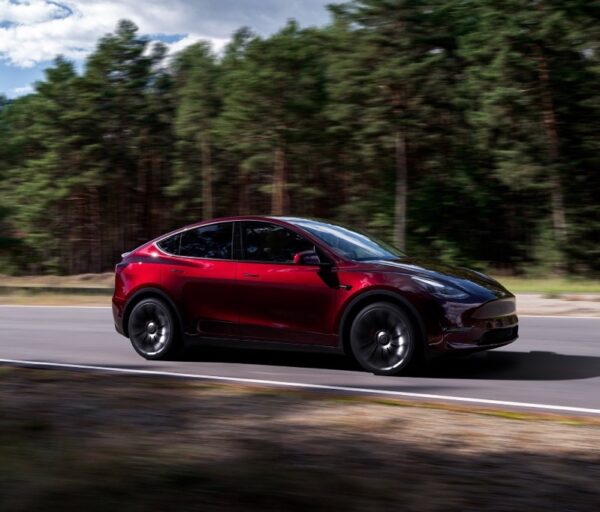German Automakers In China: Challenges And Future Prospects For BMW And Porsche

Table of Contents
Competitive Landscape and Market Saturation
The Chinese automotive market is fiercely competitive, a battleground where established international brands contend with rapidly ascending domestic players.
Intense Competition from Domestic Brands
The rise of Chinese automakers like BYD, Nio, and Xpeng represents a formidable challenge. These brands are leveraging technological advancements, particularly in electric vehicles (EVs), to gain significant market share. Their aggressive pricing strategies and government support further intensify the pressure on established players.
- Successful Chinese EV Models: BYD's Han and Tang EVs, Nio's ET7, and Xpeng's G9 are examples of technologically advanced and competitively priced vehicles directly competing with BMW and Porsche models.
- Pricing Strategies: Domestic brands often offer comparable features at significantly lower price points, appealing to the price-sensitive Chinese consumer.
- Government Support: Subsidies, tax breaks, and favorable regulations provide a significant advantage to Chinese automakers, fostering rapid innovation and growth.
Price Sensitivity and Consumer Preferences
Luxury brands like BMW and Porsche face the challenge of appealing to a market known for its price sensitivity. While luxury remains desirable, Chinese consumers are increasingly discerning, demanding advanced technology and specific features at competitive prices.
- Demand for Specific Features: Features like electric powertrains, advanced driver-assistance systems (ADAS), and connected car technologies are highly sought after.
- Evolving Consumer Preferences: Chinese consumers are trend-driven and influenced by social media, demanding cutting-edge designs and personalized experiences.
- Impact of Social Media and Influencer Marketing: Digital marketing and influencer collaborations are crucial for reaching the target audience and building brand awareness.
Supply Chain Disruptions and Import Tariffs
Global supply chain disruptions and import tariffs significantly impact the profitability and operations of German automakers in China. These challenges necessitate innovative strategies to mitigate risks and maintain competitiveness.
- Examples of Supply Chain Disruptions: The COVID-19 pandemic and geopolitical tensions have exposed vulnerabilities in global supply chains, leading to delays and increased costs.
- Impact of Tariffs on Pricing: Import tariffs directly increase the cost of imported vehicles, making them less competitive against domestically produced alternatives.
- Strategies to Mitigate Challenges: Local sourcing of components, diversification of supply chains, and strategic partnerships with local suppliers are crucial for resilience.
Government Regulations and Policy Changes
The Chinese government plays a significant role in shaping the automotive landscape, implementing policies that impact every aspect of the industry.
Stringent Emission Standards and Electrification Push
China's ambitious targets for electric vehicle (EV) adoption are driving rapid changes in the market. German automakers must adapt quickly to meet stringent emission standards and capitalize on the growing demand for NEVs (New Energy Vehicles).
- Specific Emission Standards: China's increasingly stringent emission regulations mandate a significant shift towards electric and hybrid vehicles.
- Government Incentives for EVs: Subsidies, tax breaks, and preferential policies encourage EV adoption, creating a favorable environment for NEV manufacturers.
- Investment in Charging Infrastructure: Government investment in charging infrastructure is crucial for expanding the accessibility and usability of electric vehicles.
Data Privacy and Cybersecurity Regulations
Data privacy and cybersecurity are paramount concerns in China, impacting the operation of connected cars. German automakers must ensure compliance with stringent regulations to maintain consumer trust and avoid penalties.
- Chinese Data Privacy Laws: Regulations like the Cybersecurity Law and the Personal Information Protection Law mandate strict data protection measures.
- Cybersecurity Threats: Connected cars are vulnerable to hacking and data breaches, requiring robust cybersecurity measures.
- Implications for Data Collection and Sharing: German automakers must carefully navigate data collection and sharing practices to comply with Chinese regulations.
Navigating Bureaucracy and Local Partnerships
Operating in China requires navigating complex bureaucratic processes and establishing successful joint ventures with local partners.
- Examples of Successful and Unsuccessful Joint Ventures: Understanding the cultural nuances and business practices is crucial for forming effective partnerships.
- Challenges in Obtaining Permits and Licenses: Securing necessary permits and licenses can be a time-consuming and complex process.
- Cultural Nuances: Building trust and rapport with local partners requires cultural sensitivity and a deep understanding of Chinese business etiquette.
Opportunities for Growth and Expansion
Despite the challenges, the Chinese automotive market offers significant opportunities for growth and expansion for German automakers.
Focus on Electric Vehicles and New Energy Vehicles (NEVs)
The NEV segment presents the greatest potential for growth. BMW and Porsche are investing heavily in EV production, R&D, and the development of models tailored to the Chinese market.
- Investment in EV Production and R&D: Significant investments are needed to develop and manufacture competitive EVs that meet the demands of the Chinese market.
- Development of Tailored EV Models: Customization is key to attracting Chinese consumers. Models specifically designed for the Chinese market are vital for success.
- Expansion of Charging Infrastructure: Investing in or partnering with charging infrastructure providers is essential for supporting EV adoption.
Customization and Localized Marketing Strategies
Tailoring products and marketing campaigns to resonate with Chinese consumer preferences is crucial.
- Examples of Successful Localization Strategies: Adapting vehicle features, designs, and marketing messages to align with local tastes and preferences.
- Understanding Cultural Nuances in Marketing: Marketing campaigns must be culturally sensitive and resonate with the values and beliefs of the target audience.
- Utilizing Social Media Platforms: Leveraging popular social media platforms like WeChat and Weibo is vital for effective marketing and brand building.
Leveraging Digital Technologies and Online Sales
The increasing role of digital platforms and online sales in China presents significant opportunities for German automakers.
- Investment in E-commerce Platforms: Establishing a robust online presence and utilizing e-commerce platforms is crucial for reaching Chinese consumers.
- Use of Digital Marketing Tools: Employing data-driven marketing strategies and utilizing digital tools for targeted advertising is essential.
- Online Customer Service: Providing seamless online customer service is critical for building customer loyalty and addressing concerns promptly.
Conclusion
The Chinese automotive market presents a unique set of challenges and opportunities for German automakers like BMW and Porsche. Success hinges on navigating intense competition, adapting to evolving consumer preferences, complying with stringent regulations, and embracing innovation in electric vehicles and digital technologies. To maintain a strong presence and achieve sustained growth in the dynamic Chinese automotive market, German automakers must continue to invest in localized strategies, technological advancements, and building strong relationships with local partners. Understanding the nuances of the German Automakers in China landscape is crucial for future success. The future of German automakers in China depends on their ability to effectively adapt and innovate within this complex and dynamic market.

Featured Posts
-
 A Grieving Familys Tribute Remembering Young Manchester United Fan Poppy
May 02, 2025
A Grieving Familys Tribute Remembering Young Manchester United Fan Poppy
May 02, 2025 -
 Bhth Wzyr Altjart Frs Tezyz Alteawn Me Jmhwryt Adhrbyjan
May 02, 2025
Bhth Wzyr Altjart Frs Tezyz Alteawn Me Jmhwryt Adhrbyjan
May 02, 2025 -
 Nigeria Railway Corporation Halts Warri Itakpe Rail Service Following Engine Malfunction
May 02, 2025
Nigeria Railway Corporation Halts Warri Itakpe Rail Service Following Engine Malfunction
May 02, 2025 -
 The Future Of Buy Canadian At Loblaw Ceo Weighs In
May 02, 2025
The Future Of Buy Canadian At Loblaw Ceo Weighs In
May 02, 2025 -
 Understanding The Landscape Of Ongoing Nuclear Litigation
May 02, 2025
Understanding The Landscape Of Ongoing Nuclear Litigation
May 02, 2025
